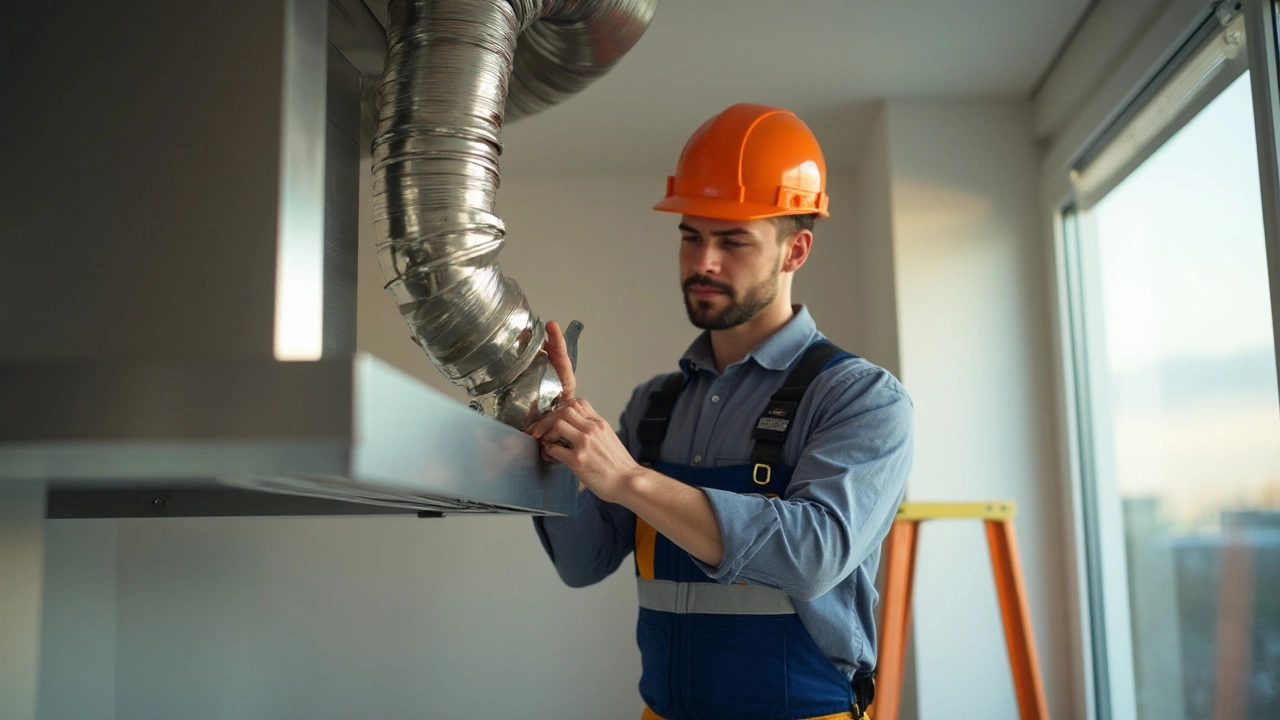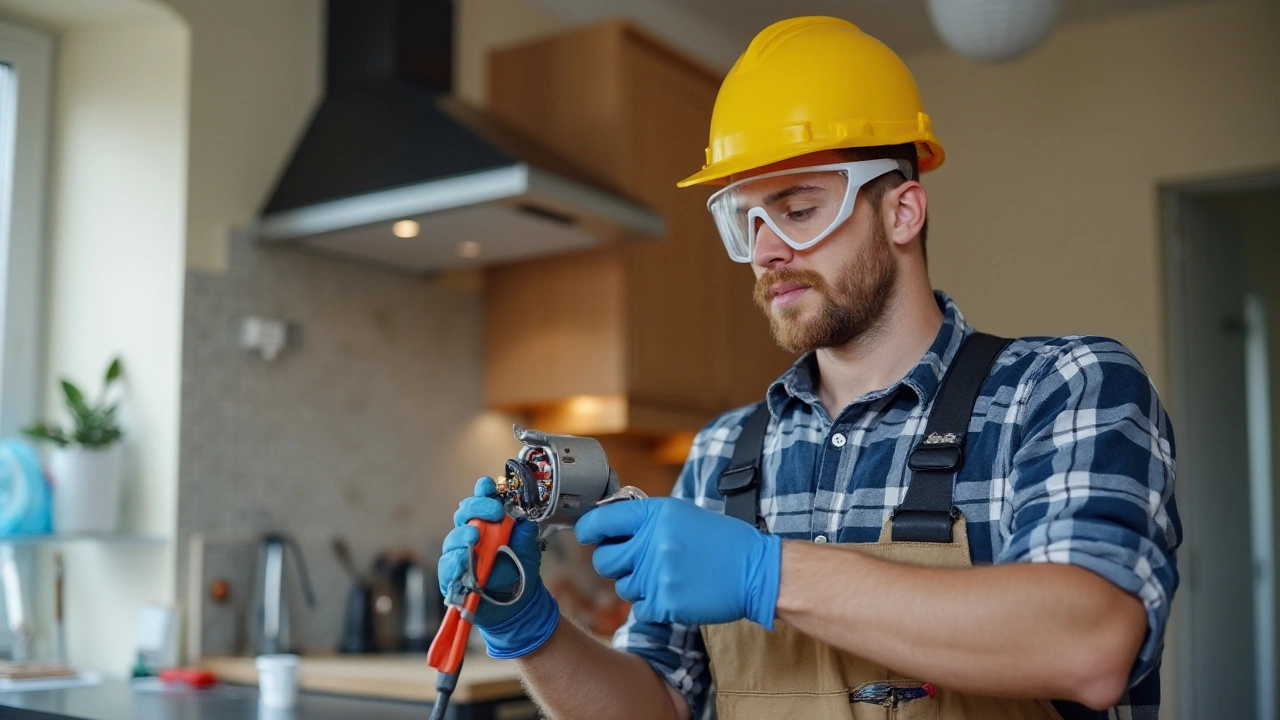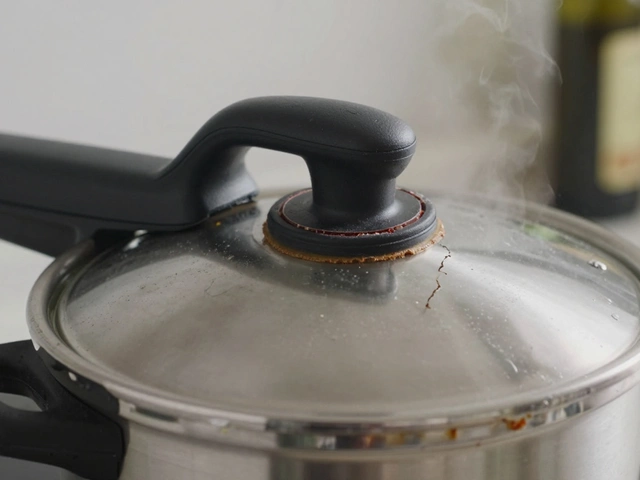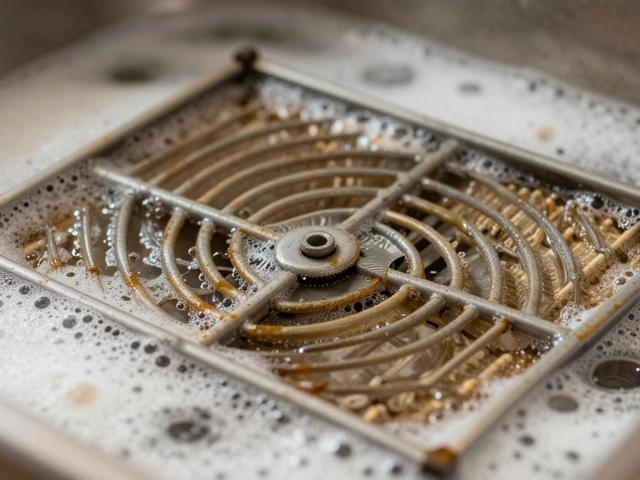Choosing the right professional for installing or repairing an extractor fan can make a significant difference in both performance and safety. While these appliances seem straightforward, their role in ensuring proper ventilation makes them crucial components in kitchens and bathrooms. Whether it's a new installation or a quick repair, knowing who to call can save you time and headaches.
Electricians are often the go-to experts due to their knowledge of wiring and electrical systems. However, depending on the complexity of the task, other skilled tradespeople like handymen or HVAC technicians might be equally equipped for the job. In this article, we'll explore the ins and outs of extractor fan services and provide tips to ensure you make the best choice for your home.
- Identifying the Right Tradesperson
- Understanding the Installation Process
- Common Repair Issues
- Tips for Hiring a Professional
Identifying the Right Tradesperson
When it comes to handling extractor fan installation or repairs, the task may sound simple, but it often requires a blend of skills. Depending on the complexity, you might need to identify the best professional to ensure your job is done safely and efficiently. Generally, an electrician would be your primary choice. Their expertise in dealing with electrical wiring and safety ensures that your installation or repair complies with regulations. They are trained to handle circuits and understand the technical intricacies of fitting an electrical appliance like an extractor fan.
However, it's essential to evaluate the nature of the job before making the call. For instance, if the task involves elaborate ductwork or ventilation adjustments, an HVAC technician can be a viable option. These professionals specialize in heating, ventilation, and air conditioning systems. Their knowledge goes beyond electrical work to include an ability to understand airflow and atmospheric pressure concerns, which is crucial for some fan systems.
According to HomeAdvisor, 'The right professional not only saves time but also ensures the task is performed to the best standards.' This highlights the significance of vetting the right expert.
More straightforward jobs like fan replacement or minor fixes can sometimes be handled by a qualified handyman. Handymen typically have a broad skill set encompassing minor electrical work, general repairs, and installations. But hiring one should come with an understanding of their limitations regarding specialized electrical issues. Interestingly, statistical data from the Bureau of Labor Statistics indicates that the demand for electricians will grow by 8% by 2031, a promising margin compared to other professions. This trend is partly due to the increasing dependence on electrically powered appliances, including those in ventilation.
Consider Qualifications and Experience
While assessing potential tradespeople, always consider their qualifications and experience. Look for electricians or technicians who are certified and have a reputation for high-quality service. In New Zealand, licensed electricians should adhere to legislative standards, such as holding a valid practicing license. Remember that experience counts in trades where years in the industry typically translate to better problem-solving skills. Check for customer testimonials and fieldwork examples that reflect their capability in managing similar tasks.
Don't forget to discuss their cost structure. A reputable tradesperson will provide a clear estimate upfront and should be transparent about additional charges that might accrue due to unforeseen complications. The cost may also vary depending on your location, materials needed, and the complexity of the job. Lastly, scheduling flexibility is an added advantage, especially if you need the fan up and running promptly.

Understanding the Installation Process
Installing an extractor fan may seem like a simple task, but it actually involves several careful steps to ensure proper functionality and safety. To kick off the installation, an assessment of the installation site is crucial. This initial step involves checking the space for proper venting options, electrical access, and any potential obstructions within walls or ceilings. Most often, fans are installed in kitchens and bathrooms, areas that are prone to humidity and require effective ventilation. A well-placed fan helps in significantly reducing moisture, which can lead to the growth of mold and mildew.
Once the site is assessed, the tradesperson needs to ensure that the installation adheres to all local building codes and regulations. These codes often dictate specifications regarding the venting path, duct size, and electrical wiring. According to the Electrical Safety Authority, "Adhering to building codes isn't just about compliance; it's about ensuring the safety and functionality of your home systems." If a new vent pathway needs to be created, it may involve drilling through walls or ceilings, which requires not only technical skill but also precision to avoid damaging existing structures.
After securing the mounting bracket for the fan unit, the next step involves connecting the wiring. This is where the expertise of an electrician truly shines. The wiring must be correctly connected to ensure safety when the fan operates. Improper wiring can lead to circuit overloads or, worse, become a fire hazard. If the fan is part of a larger bathroom remodeling project, the electrician will coordinate with the plumber and any other trades to ensure seamless integration of all fixtures.Electricians bring their expertise in ensuring everything is powered correctly without risk.
Once the fan is wired, it’s time to attach the vent ducts. The ductwork is what allows the extracted air to be expelled outside the home. Depending on the path required, flexible or rigid ducts might be used. It's crucial for these ducts to be installed without unnecessary bends, as this can impede airflow and reduce the efficiency of the fan. Insulating ducts in cooler environments will also help prevent condensation build-up. All these steps combined create a robust and efficient system where every component has its part to play in ensuring the fan works as expected.

Common Repair Issues
Extractors are essential in maintaining air quality, yet even the best systems aren’t immune to the need for eventual repair. One of the most common issues faced is poor ventilation, which often stems from blockages in the ductwork. Dust and grease accumulation can choke the airflow, leading to dampness and odors persisting in the room. Rectifying such a problem requires a careful check and cleaning of all ducts and vents, a task ideally suited to professionals who understand the intricacies of the system layout.
Another often-encountered problem is an extractor fan that's stopped working entirely. This can be traced back to electrical issues, such as loose or damaged wiring. Given that the fan is reliant on electricity, any disconnection in power can cause the system to fail. Electricians are the preferred choice for handling these repairs due to their specialized training, ensuring safety and functionality are maintained. It's worth noting that trying to fix electrical faults without proper know-how is risky business.
A less frequently discussed issue involves strange noises emanating from the fan. Generally attributed to worn-out bearings or a failing motor, these sounds could indicate the need for part replacement. Regular maintenance and servicing can preempt such problems, catching minor wear and tear before it escalates. Some may first attempt a DIY approach, but intricate tasks such as motor replacement should be strictly left to qualified tradespeople and electricians.
Then there's the nuisance of excessive vibrations, which could point towards improper mounting or balancing. An internally imbalanced fan not only diminishes the fan’s efficiency but can lead to further mechanical failures if disregarded. To remedy this, the fan may need reinstallation, ensuring it's securely fastened and level. Attention to detail during installation minimizes the risk of vibration issues in the future.
Lastly, although modern extractor fans are designed to be robust, switches and controls can malfunction. If settings don’t engage or the fan doesn’t power on as expected, the fault might lie with corroded or damaged components within the control panel. This is another scenario where an electrician's expertise is indispensable. They can diagnose and rectify faults without compromising the fan’s integrity.
As the New Zealand Herald once emphasized,
“A well-maintained home appliance not only adds convenience but also ensures a safe living environment.”Whether it’s nurturing your kitchen or bathroom air quality, taking action when issues arise with your extractor fan is a proactive step towards a more comfortable home.

Tips for Hiring a Professional
Finding the right person to handle your extractor fan needs is akin to looking for a needle in a haystack, especially considering the plethora of options out there. Choosing a proficient professional for installation or repair can spare you future inconveniences and is often more cost-effective in the long run. However, it isn't just about finding someone who can get the job done; it's about finding a tradesperson who understands your specific needs and can deliver on those expectations.
To start with, always check the credentials of any electrician or handyman you consider hiring. Ensure they have the necessary licenses to deal with electrical systems if that's relevant. Having valid certification is not merely about compliance with legal requirements; it’s a testament to their commitment to the craft and their understanding of safety protocols. You wouldn’t want to end up with poorly installed or unsafe extractor fans just to save a few bucks.
Experience is another crucial factor. You want someone who has been around the block, who’s dealt with the quirky issues old houses throw up or the specific needs of modern constructions. A tradesman with a solid track record isn't just about skill—it’s about trust. Chances are, they'll know how to work around unexpected hiccups without wracking up extra hours on the clock.
Before sealing the deal, don’t hesitate to ask for references. Previous clients are more likely to give you an honest assessment of the contractor’s reliability and professionalism. This due diligence can save you a lot of stress later. You may even come across insights like their punctuality or whether they leave your house in a mess or not.
The planning phase should include a detailed discussion of what you need and a clear understanding of your specific requirements. Some professionals are quick to quote you a price without even visiting your home. While it’s convenient to get an estimate over the phone, it might not always reflect reality. It’s always better to have them inspect the area first-hand. This allows them to foresee complications and adjust their quote accordingly.
Be sure to get several quotes. In the words of Gina Paris, a well-known home improvement consultant,
“The cheapest quote isn’t always the best deal, just like the most expensive isn’t inherently better.”It’s about the value you are getting for the money. Take into account what’s included in the quote, the materials they plan to use, and, importantly, the warranty they offer on parts and labor.
Given the significance of this work, a good deal of contractors and electricians will offer a warranty or guarantee for a specified period. Don't skip reading their terms carefully. It’s this coverage that might prove invaluable if something doesn’t work as expected. Being aware of what's covered can save you from stressful disputes later on. The peace of mind it brings is usually priceless.




